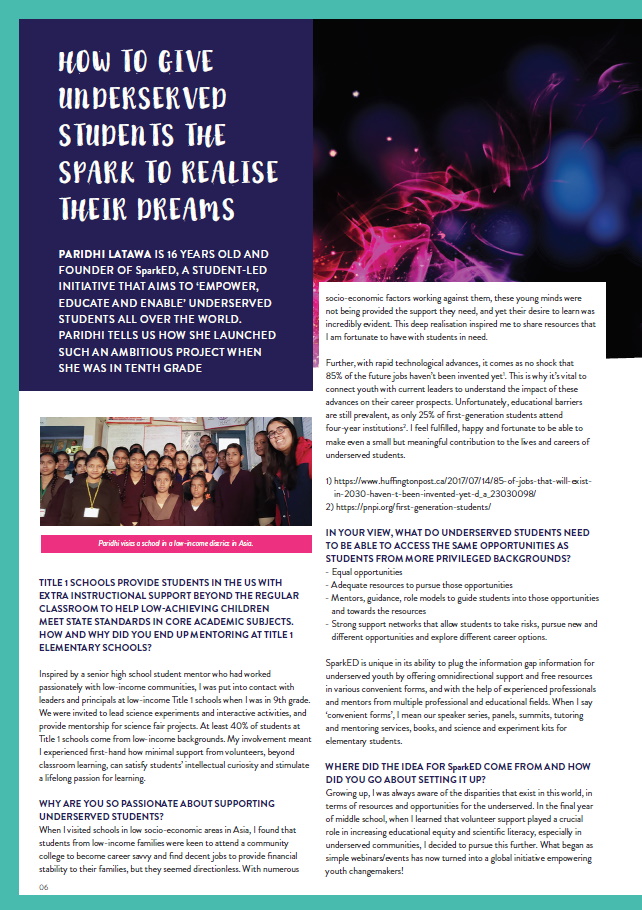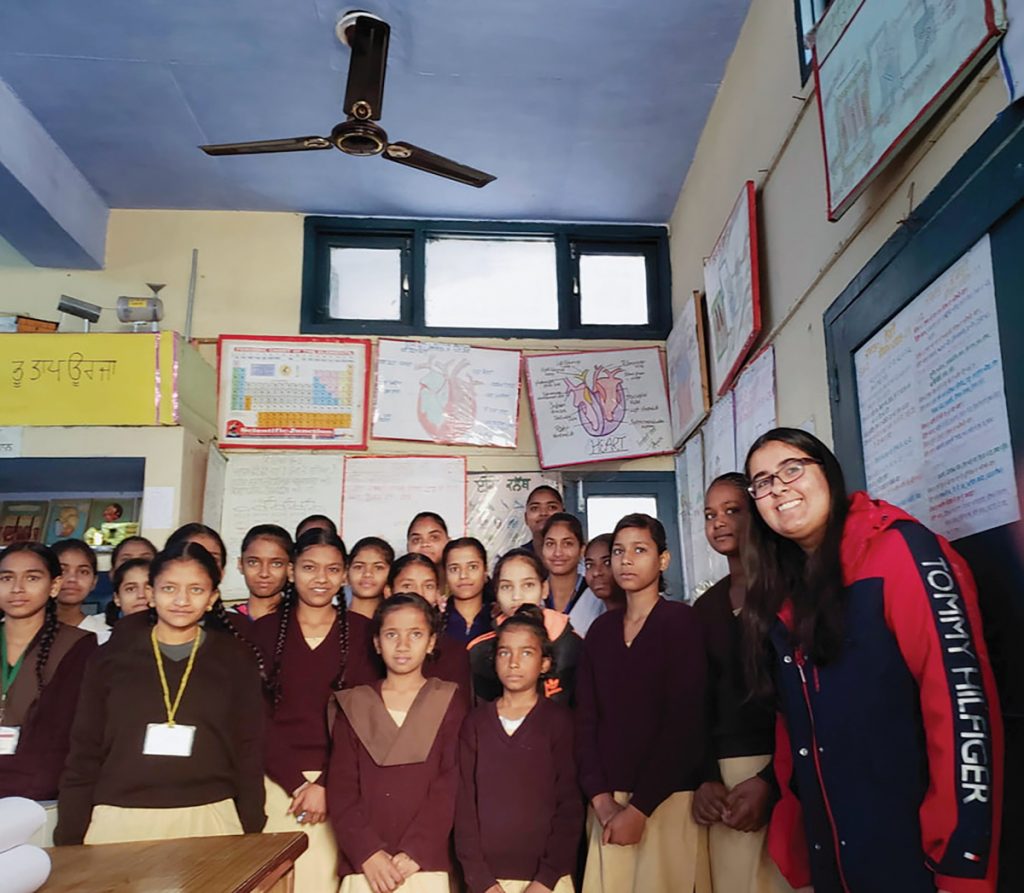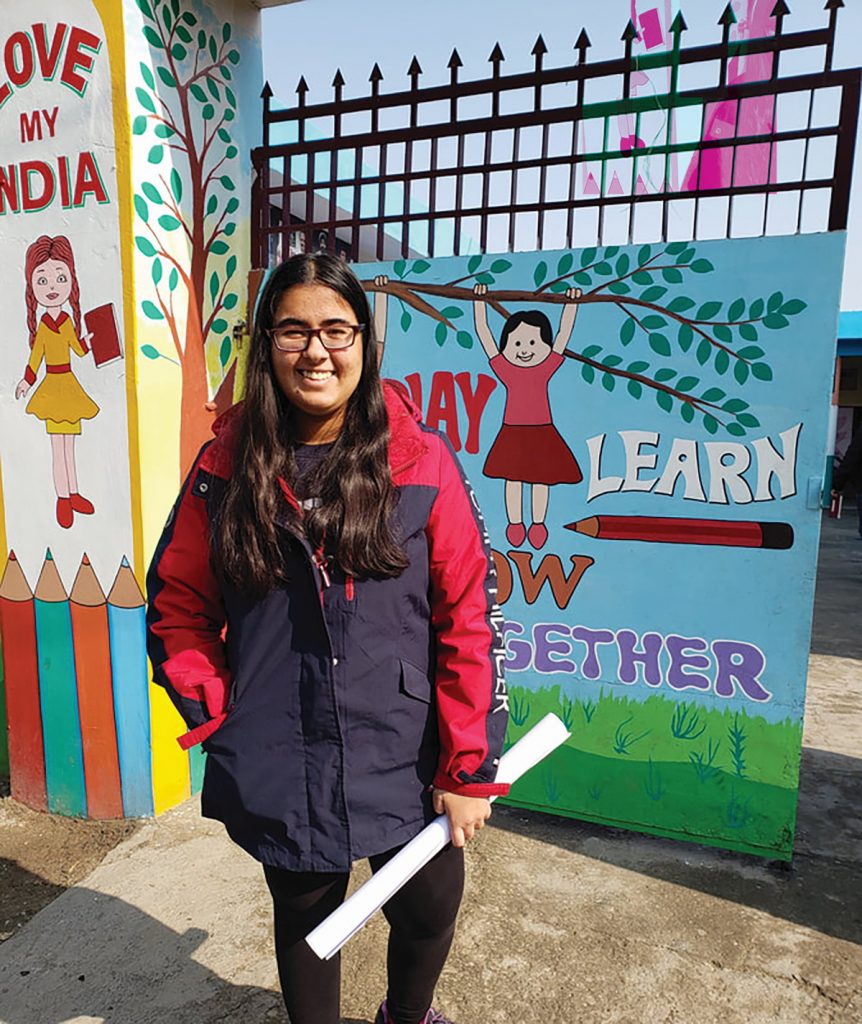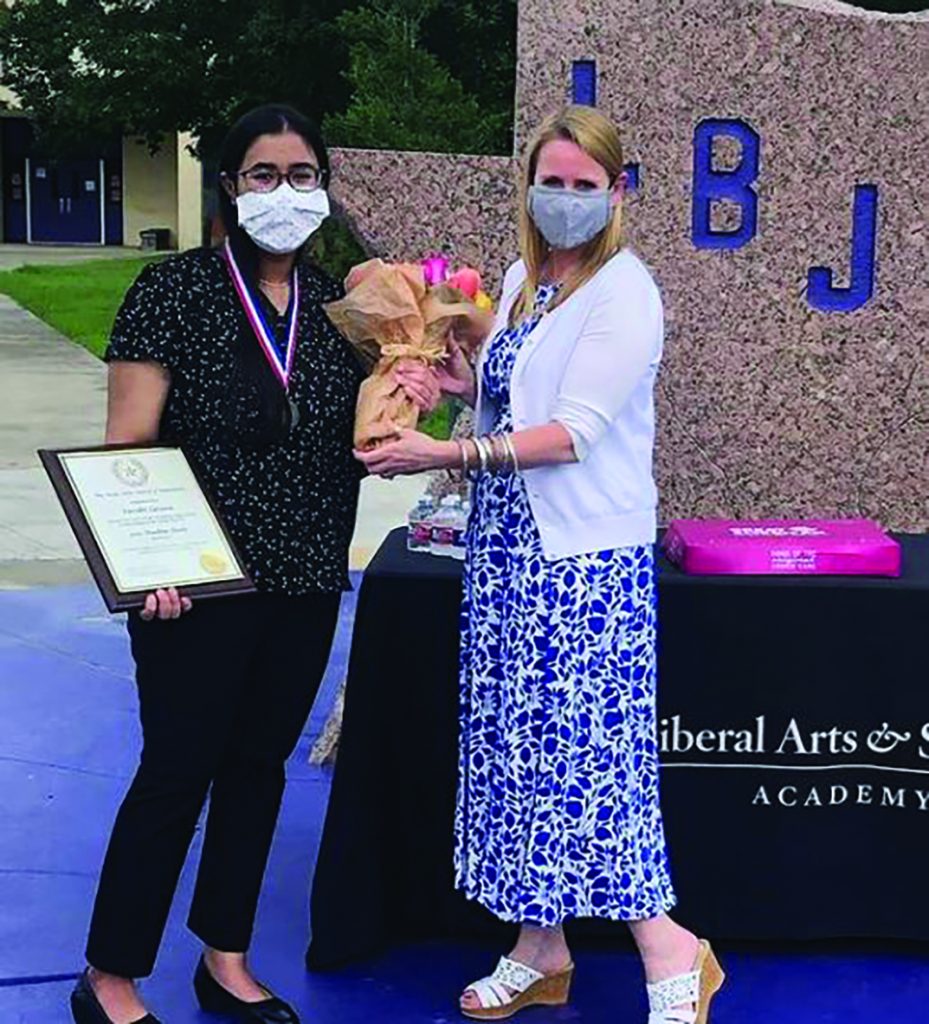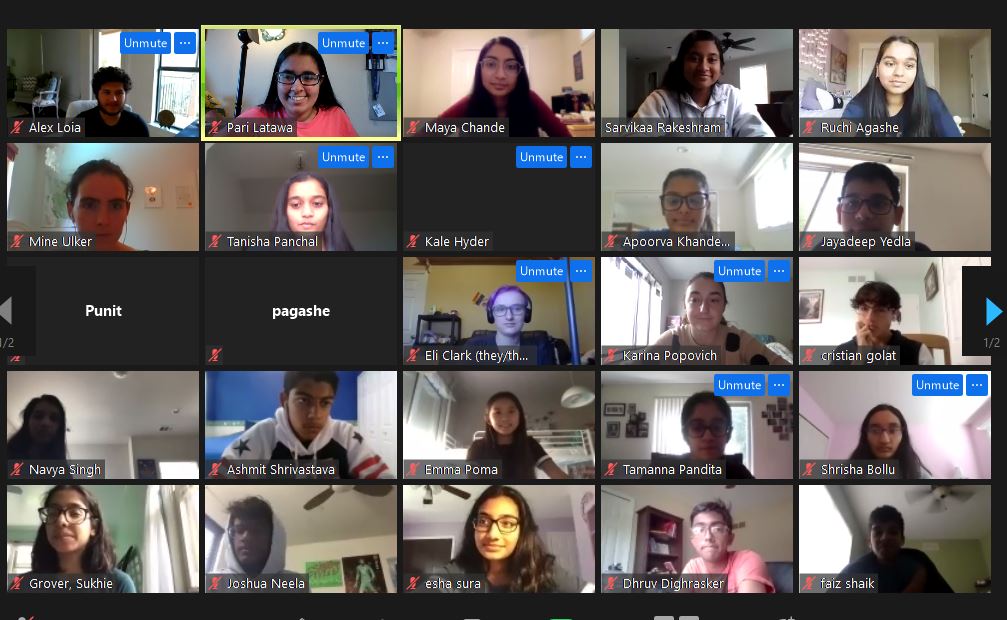How to give underserved students the spark to realise their dreams
Paridhi Latawa is 16 years old and founder of SparkED a student-led initiative that aims to ‘empower, educate and enable’ underserved students all over the world. Paridhi tells us how she launched such an ambitious project when she was in tenth grade
Title 1 schools provide students in the US with extra instructional support beyond the regular classroom to help low-achieving children meet state standards in core academic subjects. How and why did you end up mentoring at title 1 elementary schools?
Inspired by a senior high school student mentor who had worked passionately with low-income communities, I was put into contact with leaders and principals at low-income Title 1 schools when I was in 9th grade. We were invited to lead science experiments and interactive activities, and provide mentorship for science fair projects. At least 40% of students at Title 1 schools come from low-income backgrounds. My involvement meant I experienced first-hand how minimal support from volunteers, beyond classroom learning, can satisfy students’ intellectual curiosity and stimulate a lifelong passion for learning.
Why are you so passionate about supporting underserved students?
When I visited schools in low socio-economic areas in Asia, I found that students from low-income families were keen to attend a community college to become career savvy and find decent jobs to provide financial stability to their families, but they seemed directionless. With numerous socio-economic factors working against them, these young minds were not being provided the support they need, and yet their desire to learn was incredibly evident. This deep realisation inspired me to share resources that I am fortunate to have with students in need.
Further, with rapid technological advances, it comes as no shock that 85% of the future jobs haven’t been invented yet. This is why it’s vital to connect youth with current leaders to understand the impact of these advances on their career prospects. Unfortunately, educational barriers are still prevalent, as only 25% of first-generation students attend four-year institutions. I feel fulfilled, happy and fortunate to be able to make even a small but meaningful contribution to the lives and careers of underserved students.
In your view, what do underserved students need to be able to access the same opportunities as students from more privileged backgrounds?
– Equal opportunities
– Adequate resources to pursue those opportunities
– Mentors, guidance, role models to guide students into those opportunities and towards the resources
– Strong support networks that allow students to take risks, pursue new and different opportunities and explore different career options.
SparkED is unique in its ability to plug the information gap information for underserved youth by offering omnidirectional support and free resources in various convenient forms, and with the help of experienced professionals and mentors from multiple professional and educational fields. When I say ‘convenient forms’, I mean our speaker series, panels, summits, tutoring and mentoring services, books, and science and experiment kits for elementary students.
Where did the idea for SparkED come from and how did you go about setting it up?
Growing up, I was always aware of the disparities that exist in this world, in terms of resources and opportunities for the underserved. In the final year of middle school, when I learned that volunteer support played a crucial role in increasing educational equity and scientific literacy, especially in underserved communities, I decided to pursue this further. What began as simple webinars/events has now turned into a global initiative empowering youth changemakers!
SparkED offers tutoring, mentorship programmes, webinars, and much more, and over 1,500 students have benefited from these services. How do you know you are reaching the students that need a support network the most?
PARIDHI LATAWA IS 16 YEARS OLD AND FOUNDER OF SparkED
Title 1 schools provide students in the US with extra instructional support beyond the regular classroom to help low-achieving children meet state standards in core academic subjects. How and why did you end up mentoring at title 1 elementary schools?
Inspired by a senior high school student mentor who had worked passionately with low-income communities, I was put into contact with leaders and principals at low-income Title 1 schools when I was in 9th grade. We were invited to lead science experiments and interactive activities, and provide mentorship for science fair projects. At least 40% of students at Title 1 schools come from low-income backgrounds. My involvement meant I experienced first-hand how minimal support from volunteers, beyond classroom learning, can satisfy students’ intellectual curiosity and stimulate a lifelong passion for learning.
Why are you so passionate about supporting underserved students?
When I visited schools in low socio-economic areas in Asia, I found that students from low-income families were keen to attend a community college to become career savvy and find decent jobs to provide financial stability to their families, but they seemed directionless. With numerous socio-economic factors working against them, these young minds were not being provided the support they need, and yet their desire to learn was incredibly evident. This deep realisation inspired me to share resources that I am fortunate to have with students in need.
Further, with rapid technological advances, it comes as no shock that 85% of the future jobs haven’t been invented yet. This is why it’s vital to connect youth with current leaders to understand the impact of these advances on their career prospects. Unfortunately, educational barriers are still prevalent, as only 25% of first-generation students attend four-year institutions. I feel fulfilled, happy and fortunate to be able to make even a small but meaningful contribution to the lives and careers of underserved students.
In your view, what do underserved students need to be able to access the same opportunities as students from more privileged backgrounds?
– Equal opportunities
– Adequate resources to pursue those opportunities
– Mentors, guidance, role models to guide students into those opportunities and towards the resources
– Strong support networks that allow students to take risks, pursue new and different opportunities and explore different career options.
SparkED is unique in its ability to plug the information gap information for underserved youth by offering omnidirectional support and free resources in various convenient forms, and with the help of experienced professionals and mentors from multiple professional and educational fields. When I say ‘convenient forms’, I mean our speaker series, panels, summits, tutoring and mentoring services, books, and science and experiment kits for elementary students.
Where did the idea for SparkED come from and how did you go about setting it up?
Growing up, I was always aware of the disparities that exist in this world, in terms of resources and opportunities for the underserved. In the final year of middle school, when I learned that volunteer support played a crucial role in increasing educational equity and scientific literacy, especially in underserved communities, I decided to pursue this further. What began as simple webinars/events has now turned into a global initiative empowering youth changemakers!
SparkED offers tutoring, mentorship programmes, webinars, and much more, and over 1,500 students have benefited from these services. How do you know you are reaching the students that need a support network the most?
Testimonials from attendees and encouragement from mentors have shown that we have been successful in attaining our goals. For example, one student wrote: “As someone interested in STEM, this panel helped me feel more confident about what steps to take to apply to colleges.” Also, through the generous partnerships and professional support, we have been able to offer resources worth around $50,000. We’re also working on providing grants for kits, books and awards for a STEM summer robotics academy for Title 1 schools in Austin, Texas, and planning training sessions for teachers in a rural school in Asia.
Which of SparkED’s many achievements are you proud of most and why?
I feel very proud to be able to spread the positive impact of SparkED’s work through its many partnerships and chapters [local groups within a larger network or organisation]. SparkED is able to build such partnerships due
to the value the community sees in the service SparkED is providing. The virtual nature of our events, especially during the pandemic, has helped the spread of our services beyond Texas to 14 US states and 11 countries.
My efforts received a boost when a few volunteers approached me and requested that I help them start chapters in Michigan and Round Rock in the US. One of the chapters focused on tutoring elementary school students impacted by remote schooling during the pandemic. We’re preparing for our annual summer conference in July, which will include workshops, keynotes and webinars on business, STEM and entrepreneurship. Beyond that we’re also planning tech-literacy summits for underserved schools and scholarships for motivated, underserved students.
What are your hopes for the future for SparkED?
Moving forward, I hope to continue building an inclusive, educationally literate community that is able to pursue its dreams despite economic hardships or social challenges. I finish high school in 2022 and plan to go to college, so I’ll continue my work with elementary, middle and high schools but will expand SparkED’s reach to include college and post-graduate students. Operationally, I’d like to have separate foci for schools, colleges and the workplace, and offer specialisms i.e. business, science, social science, etc. I’d also like to expand and set up international chapters, especially in developing countries, which link up to chapters that have more resources in developing countries. So far, we’ve been able to operate with minimal funding. We’re now applying for grants and sponsorship so that SparkED can grow and increase its positive impact in local and international communities.
Finally, what has life taught you so far?
Life has taught me to be grateful for the resources I have, to work hard to make best use of these resources, and to share these resources with others in need. Establishing SparkED has been a tremendous learning experience for me. As the founder of SparkED, my aim was always to promote collaboration through a global team. This has led to lots of challenges but I’ve managed to turn these challenges into team-building and learning opportunities. SparkED has also given me experience in finance, operations and law.
I’ve learned that the world is there, ready to help you, if you try.

